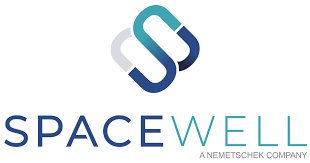
In Short
Spacewell wanted to move its IoT platform solution data from local storage to public cloud, to benefit from the advantages of cloud-native platforms in terms of scalability, reliability, security, and speed.
The migration to Google Cloud was carried out in 2021 in a timeframe of 3 months, with guidance of Google Cloud partner Devoteam G Cloud
A large majority (95%) of Spacewell customers were migrated without any impact. The remaining 5% of customers, who were in some measure impacted by the migration, were those running very specific integrations or who were still in implementation mode. From those customers, Spacewell received positive feedback about how the migration was handled.

A silent migration at this scale can only be successful if you gather all the right experts. The Spacewell engineering team was very well assisted by Devoteam G Cloud throughout the entire process, receiving guidance every step of the way.
About Spacewell
Spacewell is a global supplier of IWMS software and smart building solutions. Using real-time IoT data analytics and smart apps, it supports real estate, workplace, and facility managers to improve the lifecycle performance of building portfolios, the productivity and wellbeing of the people using these buildings and the quality of the services delivered to
them.
Spacewell operates globally, and is part of the Nemetschek Group, a listed strategic holding company whose operating subsidiaries employ more than 3,000 experts around the world. For more information, visit their website or follow Spacewell on LinkedIn.
The Problem
Facility management continues to evolve and so are the software and technology solutions supporting IT. Increasingly, facility operations are augmented with real-time data streams from sensors, building management systems, and user devices. These data points provide live information about, for example, ambient conditions and the utilization that occupants make of various spaces.
Such applications generate large and complex data sets, that are typically a combination of structured, semi-structured, and unstructured data, managed in an IoT platform solution. Spacewell wanted to move this data from local storage to public cloud, to benefit from the advantages of cloud-native platforms in terms of scalability, reliability, security, and speed.
The Goal
Important goals were:
- Enabling faster platform solution development than can be achieved with private clouds
- Increasing flexibility in data residency. Two completely separated instances were created on Google Cloud. One in the USA, one in Europe (with the potential to quickly create new instances when needed, e.g., in APAC)
- Enhanced performance, stability, and uptime
- Instant scaling & elasticity
- Advanced security features
- GDPR compliance and data protection
- Encryption by default for data-in-transit and at-rest
- Hard multi-tenancy implementation: each tenant is set up in its own dedicated environment with all the data completely isolated from other tenants
The Solution
The old (local storage) and new (public cloud – Google Cloud) environments were technically very different. Hence, this operation was not a “simple” lift & shift from one type of hosting to another. It was a challenging journey from an old infrastructure and architecture to a new cloud-native infrastructure. The migration to Google Cloud was carried out in 2021 in a timeframe of 3 months.

Spacewell chose the Google Cloud Platform (GCP) because of its unique set of modern and specific components that is best suited for its smart workplace IoT platform when compared against other major public cloud providers such as Microsoft Azure, Oracle, or Amazon Web Services.
The Result
The migration from local hosting to Google Cloud involved more than 100 clients, 100.000 live data streams, 5.000 users and 10 billion data points. A large majority (95%) of Spacewell customers were migrated without any impact.
This means:
- Users were always able to login, without any downtime
- Dashboards and touchpoints where always available, without any downtime
- No historical data got lost
- Sensor streaming (live data) was never disrupted
The remaining 5% of customers who were in some measure impacted by the migration were those running very specific integrations or who were still in implementation mode.
From those customers, Spacewell received positive feedback about how the migration was handled.

The migration from local hosting to public cloud involved more than 100 clients, 100,000 live data streams, 5,000 users and 10 billion data points. A large majority of clients were migrated without any impact or disruption at all. From customers who were in some measure impacted, we received positive feedback about how this was handled.